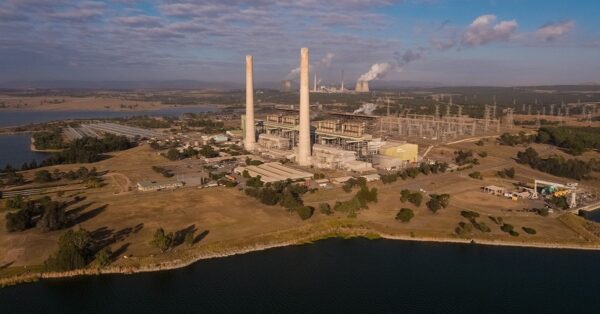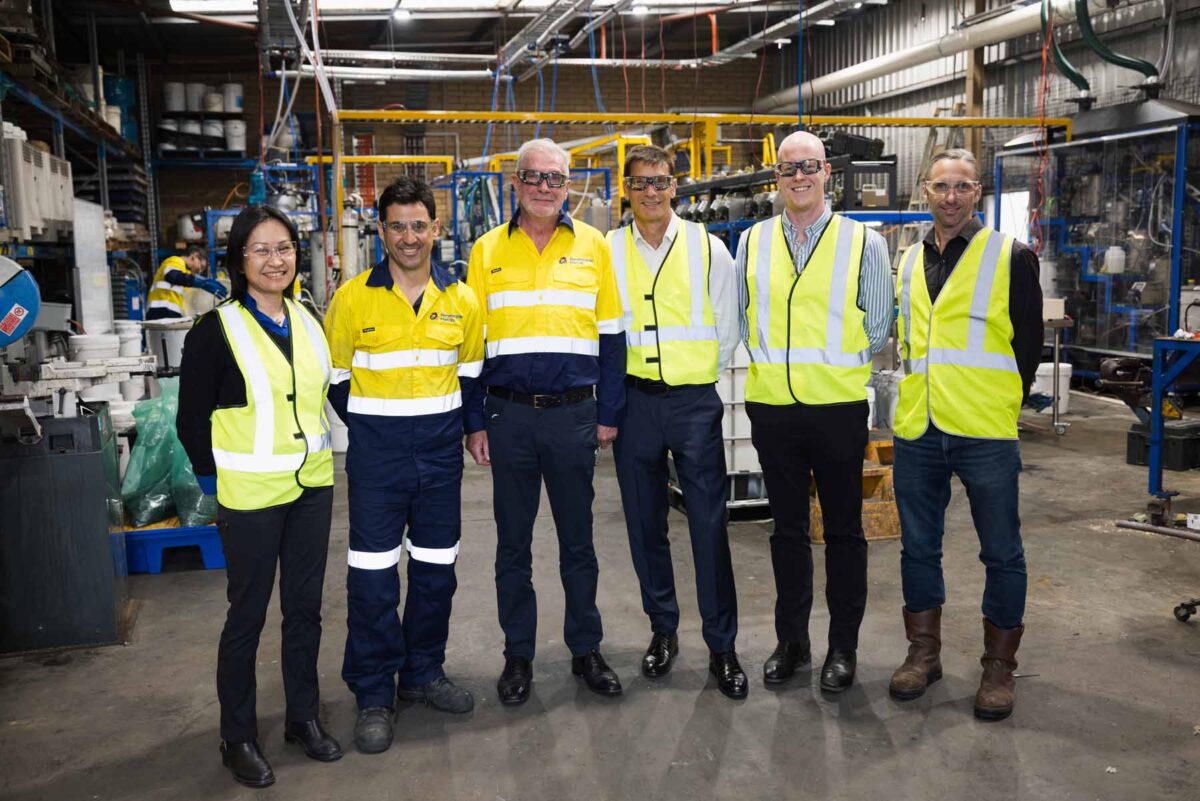Australia’s biggest generator and retailer, AGL, has signed a Memorandum of Understanding with Renewable Metals to develop a pre-feasibility study for a lithium battery recycling facility in the New South Wales Hunter region.
Renewable Metals, a startup, just recently completed its battery recycling pilot program in Western Australia demonstrating its innovative processing method, which it says operates at low temperatures and with no sodium sulfate or other chemically precipitated byproducts.

Image: AGL Energy
Australia’s battery recycling industry is nascent, and faces a significant hurdle due to the nation’s slow uptake of electric vehicles (EVs), which would be the most obvious feedstock.
AGL’s MoU with Renewable Metals
The two companies will embark on a pre-feasibility study outlining indicative project infrastructure and engineering requirements and identifying regulatory approvals and licences necessary for the development, construction, and operation of the project.
If this project were found to be viable, the facility would have an initial planned capacity of 5,000 tonnes per year. It would be Renewable Metals first commercial facility.
Renewable Metals
Speaking to pv magazine last month, Renewable Metals’ then Acting CEO, Mark Urbani, described the company’s pilot program as “promising.”
Renewable Metals says it has developed an innovative process for lithium-ion battery recycling which can recover up to 95% of the critical minerals from batteries including lithium, nickel, cobalt, copper and manganese. Importantly, the company has also highlighted the lowered environmental impacts of its processes, since battery recycling can result in toxic byproducts and seperate waste streams.
It is aiming to recycle a wide range of lithium-ion battery types, from grid storage batteries to EV modules to battery cells in consumer electronic products such as laptops.
Renewable Metals is one of the only players in Australia’s battery recycling landscape, with fellow Australian recycling upstart, Neometals, now working largely overseas, having set up a plant in Germany. Envirostream, on the other hand, reportedly focuses on turning spent batteries into what is known as “black mass,” essentially shredded batteries.
“We want to develop the first true recycling plant in Australia,” Urbani told pv magazine. “Currently batteries are shredded and sent off overseas.”
Renewable Metals is seeking to build a demonstration plant by end of next year, 2024, which will be semi-commercial and hopefully produce critical mineral products the company can sell. The step after this would be to build a fully commercial plant, like that being examined by AGL.
AGL’s Hunter Energy Hub
In April, AGL shuttered its Liddell coal plant in the Hunter Valley. It plans to retire its Bayswater coal power station, situated less than five kilometres away, between 2030 and 2033.
The company is already well underway with plans to connect big batteries at its former coal sites, with a 500 MW/2 GWh battery energy storage system planned for Liddell.
AGL is also looking to situate other new energy assets at these industrial sites, and in 2022 AGL’s chief operating officer, Markus Brokhof flagged the Hunter Energy Hub would combine grid-scale batteries, solar thermal storage, wind, pumped hydro, and hydrogen.
On the hydrogen front, the company signed an MoU with Fortescue to look into turning Liddell and Bayswater into green hydrogen production centres with up to 2 GW of capacity. Not much seems to have come from that particular venture since then.
“Our current strategy is to transition the Liddell and Bayswater sites into the Hunter Energy Hub, by bringing renewable energy generation and associated industries to those sites,” AGL’s General Manager Energy Hubs, Travis Hughes, said in the Renewable Metals announcement.
This content is protected by copyright and may not be reused. If you want to cooperate with us and would like to reuse some of our content, please contact: editors@pv-magazine.com.









By submitting this form you agree to pv magazine using your data for the purposes of publishing your comment.
Your personal data will only be disclosed or otherwise transmitted to third parties for the purposes of spam filtering or if this is necessary for technical maintenance of the website. Any other transfer to third parties will not take place unless this is justified on the basis of applicable data protection regulations or if pv magazine is legally obliged to do so.
You may revoke this consent at any time with effect for the future, in which case your personal data will be deleted immediately. Otherwise, your data will be deleted if pv magazine has processed your request or the purpose of data storage is fulfilled.
Further information on data privacy can be found in our Data Protection Policy.